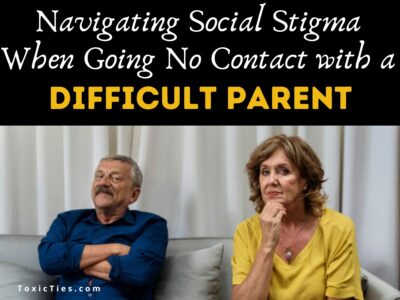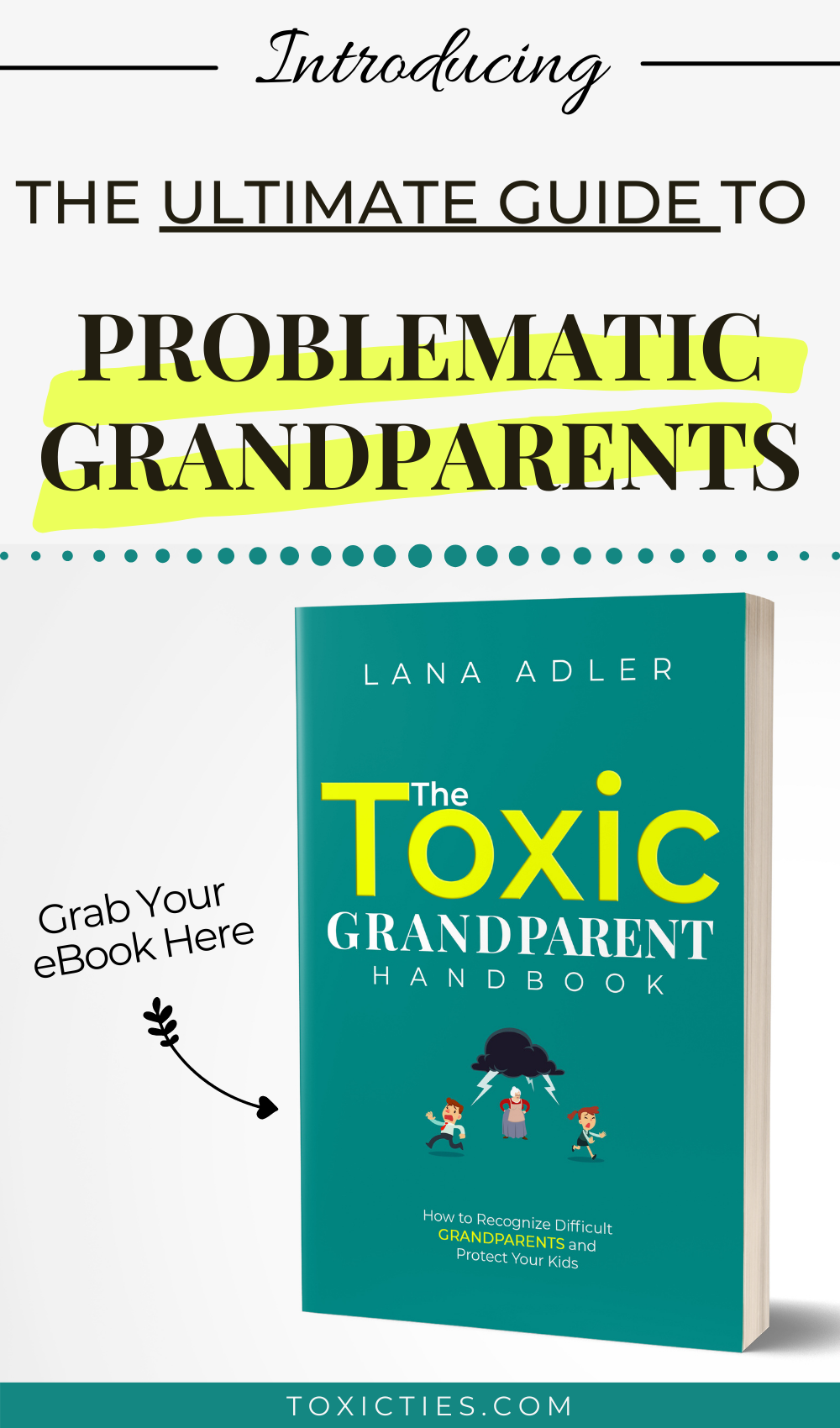Do you feel cast in the role of an evil stepmother? Are you tired of all the bad unsolicited advice from people who don’t have a clue? Do you feel trapped and resentful of your partner’s lack of support?
Then I have good news for you. You may not be the wicked stepmother after all.
Being a stepparent, especially a stepmother, is a lonely and treacherous journey that has few rewards but a multitude of challenges.
In most cases, these challenges have nothing to do with specific stepmothers or stepchildren. Instead, they are grounded in our cultural myths surrounding the stepmother and the societal pressure put on the stepmom to instantly love the stepkids.
Let’s look at those challenges in more detail.
10 Reasons Why You’re Not The Evil Stepmother You Think You Are
In addition to regular parenting challenges, stepparents face many additional trials that make being a parent more difficult, and in some cases, impossible.
When faced with these challenges, you may feel like the evil stepmother from children’s fairytales. But before you sink deeper into self-loathing, consider another explanation for your “wickedness” and give yourself a break.
Here are 10 reasons why the stepmother-stepchild relationship can be difficult. After reading this, you may be relieved to discover that you’re not as evil as you think.

1. Not Enough Time
Sociological theories state that the longer parents live with a child and the more they engage in child-rearing tasks, the stronger their bond with said child.
It takes time to develop a bond — time that stepparents usually don’t have.
In a stepparent-stepchild relationship, the stepmother enters the life of a child at a later age. As a result, she has fewer opportunities to bond with a child, so the relationship is weaker. It has nothing to do with your wickedness.
2. No Biological Connection
A parent’s role is to provide love, care, and protection to the child. All of these aspects naturally grow out of a biological parent-child bond. Even in times of conflict, there is an underlying warmth and connection that is inborn.
In other words, we are biologically programmed to love our kids. It’s not always the case (some biological parents don’t love their children). But as a rule, common genetic heritage with our children provides a sense of connectedness and a family bond.
Stepparents don’t have that advantage.
That’s not to say that stepmothers can’t love their stepkids. I believe that you can love a stepchild (adopted child, foster child) as much as you would love your own. But the connection isn’t instantaneous. It needs time to grow.
So just because you don’t instantly love your stepkids doesn’t mean you’re the evil stepmother.

3. The Ambiguity of the Stepmother Role
Stepmothers experience contradictory pressures on them to act as both parent and nonparent.
On the one hand, the stepmother is expected to be the mother when the child’s own mother is not around. On the other hand, she is not allowed to truly parent because the child already has a mother and a father. Quite simply, it’s not her child.
She is supposed to assume the caretaker role, but also be flexible and sensitive enough to jump out of that role whenever “real” parents want to take the lead.
Conflicts and matters of discipline are especially difficult to navigate since it automatically puts the stepmother in a negative light.
And it doesn’t help that the rules of sharing parenting functions with the biological parents are never clearly established.
So, no. You’re not evil. Just confused and tired.
4. Pressure to Be Perfect
Many stepmothers are living in the shadow of the “wicked stepmother” stereotype. This stereotype has been perpetuated for hundreds of years all over the world.
Over 900 stories had been written about evil or wicked stepmothers, including the ones immortalized by Disney and etched in children’s minds forever — “Cinderella” and “Snow White.”
As a result, they feel that they have to overcompensate to be the opposite of the evil stepmother.
So they try to be perfect, overly positive, or too permissive with the stepchildren.
But no relationship can bear the weight of perfection, and sooner or later the desire to be perfect gives way to resentment.
See? No wickedness here. Just trying to wade through centuries of anti-stepmother propaganda.
5. No Socially Acceptable Outlet
In recent years society’s views on motherhood changed. In the 1950s-60s, it was seen as a woman’s natural role or even an obligation.
Nowadays when the child-rearing tasks are more equally divided, there is more empathy and understanding of just how challenging raising a child is. It became acceptable to vent about being a mom, make sarcastic jokes about it, and advertise wine as “mom juice.”
But stepmoms don’t have the luxury of venting about their daily struggles. They have to hold it all in, or invite a scary comparison to Lady Tremaine.
When you don’t have an outlet for your frustration, you may become depleted, depressed, and irritable quicker than you can say “Mirror mirror on the wall”. Small things may start to feel like huge issues. And before you know it, you’ll feel like giving up.
Don’t! You’re not bad. You just need some social support.

6. The Kids Are Often Resentful of the Stepmother
As Wednesday Martin writes in her book Stepmonster, “The pressures on women who partner with men who have children — to blend, to love, to come together, to fix it, to take the high road, to put his kids first, to have a sense of humor in the face of repeated rebuffs — are overwhelming. Perhaps the most intense pressure of all is to win his kids over. Our husbands love them. We hope we will love them. We hope they will love us. But everybody knows that nobody wants a stepmother. “
Nobody wants a stepmother. So it’s no surprise that many stepchildren dislike or resent their stepmother.
Maybe they see her as an intruder who’s trying to replace their mom. In the event of a divorce, they may also perceive her as a homewrecker who stands in the way of their parents’ reconciliation.
These feelings are somewhat natural and to be expected. It’s not because you’re an evil stepmom. But it doesn’t make it easier for you to love them.

7. The Kids Behave Worse With a Stepparent
All kids push buttons and cross boundaries because they want to know where the limits of their power are. They do it with their parents, especially if the parents aren’t consistent with the discipline.
But with a stepparent, they are way worse because they sense the weirdness of the stepparent position. They know that the boundaries are blurred and they can get away with a lot more, so they exploit it.
As a result, stepmothers can feel emotionally exhausted and prefer that the stepkids weren’t around.
The situation almost always leads to conflicts and resentment on both sides.
However, it’s not your fault. It’s the dynamics of this situation.
8. Tense Relationship with the Stepkids’ Mom
How often are women friends with their partner’s ex? Almost never.
Most consider the topic of the partner’s previous romantic relationships somewhat uncomfortable. You want some information (like why the relationship didn’t work out), but after that, you just want to forget about her.
However, if you’re a stepmother, you can’t do that. Your stepchild is the constant reminder of your partner’s past, and they will always be there.
Not only that, their former love interest is there too, as a co-parent. And you have to find a way to co-exist while also navigating how to be a parent to her child without stepping on her toes.
That’s a recipe for disaster! Your partner’s ex may feel territorial, jealous of you, suspicious, or just hostile for no particular reason.
That tension is bound to be there, and it has little to do with you as a person or a mother.

9. High Level of Stress
Research shows that out of all the people in a blended family, stepmothers experience the most amount of stress. There are a lot of reasons for that stress, and some of them we’ve already discussed in detail.
The thing about stress though is, it brings out the worst in you. When you’re stressed, you’re not yourself. You’re jumpy, anxious, irritable, unkind, and even explosive at times.
So you’re not a villain. You’re stressed out and you need help.
10. It Isn’t a Choice
In Western society, we grow up with the notion that marriage is based on love and choice. We choose the person we marry because we love them, and they choose us.
But stepchildren are like in-laws –they’re the people we don’t choose who come with the person we do choose. And far too often, some of these “extra” people are those we would never consciously choose to be in our lives (like a toxic mother-in-law).
This lack of choice is disempowering and demoralizing. After all, what we experience is more about our perception of that experience than the experience itself. And choice can make all the difference in that perception.
Consider the experience of hunger. If you choose to go hungry (for example, if you’re doing intermittent fasting or fasting before a surgery), it’s not so bad. You can will yourself to abstain from food because you anticipate that the eventual reward is going to be worth the temporary discomfort.
Now imagine that you don’t have enough money to buy food, so you’re forced to go hungry. Or you’re trapped somewhere with no access to food. That experience of hunger is going to go way beyond the discomfort. It’s going to be torture.
Of course, being a stepmother isn’t exactly like that. Technically, you do have a choice. You can choose not to be with that man or woman. But that’s what you would call “Sophie’s choice” — an impossible choice that requires a sacrifice no matter what.
So if you’re not willing to let your partner go, you’re forced into a position of a stepmother. That’s not the best way to start a relationship with a child — and they can feel that.
The odds are simply not in your favor, and you’re bound to feel like an evil stepmother from time to time.

What to Do When You Feel Like an Evil Stepmother
We’ve discussed all the reasons why being a stepmother is challenging, and why you’re not a monster for not falling in love with that role.
That alone can be incredibly helpful — just admitting that it’s wicked hard, and that nearly everyone goes through the same struggles.
Knowing that you’re not alone and that it’s not your fault is a relief. But what else can you do to combat the guilt and shame of feeling like an evil stepmother?
Be Patient
Stepparenting can be hard on anybody. But stepmothers are in a particularly difficult position as they attempt to create a new family with their partner’s children.
They are expected to step into the maternal role immediately and establish a relationship similar or identical to that of a mother-child relationship.
For that reason, many stepmothers feel deep guilt and shame when they don’t feel immediate love for their stepchildren.
This is harmful and unrealistic. Don’t expect instant love or a perfect blended family. Establishing relationships takes time, patience, and effort.
Even if you don’t have deep maternal feelings towards the stepchildren right away, it doesn’t mean they won’t come later.
Give Yourself a Break
Stepmothers are often in an unenviable position where they have to care for another woman’s child despite the discomfort, stress, and ambivalence they’re experiencing.
In addition to their childcare obligation, they also feel pressure to keep up the façade of perfection while fighting negative cultural stereotypes.
That can take a devastating emotional toll on a person. Stepmothers are at high risk of developing depression, according to research. That, in turn, makes it even more difficult to be a good stepparent.
So if you’re a stepmother and you and your partner are going through a transition of becoming a blended family, be mindful of your mental health needs and don’t overextend yourself.
Take breaks, spend some time alone or with the people who can give you some emotional support, do the things you love…In other words, make sure to recharge your resources before you’re running on empty.
Enlist the Help of Your Partner
If you feel like an evil stepmother in your blended family, asking for your partner’s help and support is a no-brainer.
It doesn’t mean you should complain about their kids every chance you get.
But asking them to take a lead on the matters of discipline is reasonable. So when the kid yells: “You’re not my mom!” they can be there to back you up.
Better yet, they can have a heart-to-heart with their child and explain to them that although you’re not their mom, you’re still the woman of the house and you deserve their respect.
Another issue they can address is if the kids are hostile with you. If that hostility is based on their hope for their parents getting back together, your partner should set the record straight (preferably, together with the children’s mother).
If your partner’s ex is the one stirring the pot and trying to turn her kids against you, again, your partner should step in and address it with her.
The point is, your partner shouldn’t be sitting on the sidelines watching you struggle, or worse — blissfully unaware of it.
As Martin asserts, “A woman’s husband can make all the difference in her adjustment to remarriage with children and to the smooth functioning of the family.”

References
Dunn, J., O’Connor, T. G., & Cheng, H. (2005). Children’s Responses to Conflict Between Their Different Parents: Mothers, Stepfathers, Nonresident Fathers, and Nonresident Stepmothers. Journal of Clinical Child & Adolescent Psychology, 34(2), 223–234.
Kuther, T.L. (2020). Life span development: Lives in context. (2nd edition). Sage Publications.
Martin, W. (2009). Stepmonster: A New Look at Why Real Stepmothers Think, Feel, and Act the Way We Do. Houghton Mifflin Harcourt.
Recker, N. (2001). The Wicked Stepmother Myth. Family Life Month Packet 2001. The Ohio State University.
Waterman, B. (2001). Mourning the Loss Builds the Bond: Primal Communication between Foster, Adoptive, or Stepmother and Child. Journal of Loss & Trauma, 6(4), 277–300.









Garbage! Maybe take a step back and look at your selfs moms. The entire premise of this article makes moms the victims of their own choices. It’s funny how those who whine about toxic environments are the ones who create it for everyone but themselves, maybe you snowflakes should just remain alone. To live is to struggle, no relationship or family is perfect join the rest of the human race, snowflakes.
Thank you for this article!!! I have struggled for 4 years being a step parent with guilt, and feeling like I was never good enough. Along with all the other mental struggles that it comes with. Knowing I am not alone helps tremendously. I wish I had found this years ago. Hopefully my husband will understand more after reading this. Again, thank you!